
Part 1 of 2
It really doesn’t
get much better than this!! Subsequent
to my invitation and immediate acceptance to attend THE press
conference of the year (as well as the fun red carpet, see that
video HERE), I
was ecstatic (and a little delirious) with the anticipation of
meeting the genius director of such mega hit films as TAXI DRIVER,
GOODFELLAS, MEAN STREETS, CASINO and many, many more.
Based on the successful 2002 Hong Kong crime thriller
INFERNAL AFFAIRS, Scorsese’s upcoming film THE
DEPARTED is an adaptation of that script.
No stranger to the gangster genre, Scorsese performs his
magic once again behind the scenes but this time illuminating and
entertaining the story of the Irish mob domination and infiltration
in south Boston from the early 1970’s on.

With a film this
big and Scorsese’s name attached to it, you can bet the caliber of
players will be pretty extraordinary…and THAT it is! Some of
Hollywood’s ultimate megastars, Jack Nicholson, Leonardo DiCaprio,
Matt Damon, Mark Wahlberg, Martin Sheen and Alec Baldwin joined
forces to create yet another Marty classic. The best part of it all?
I had the pleasure of meeting two more hotties that I added
to my ever-growing list!
Matt Damon is
refreshingly witty and charismatic with a megawatt smile. Having
gained fame and acclaim for his film GOOD WILL HUNTING (co-written
with best male friend Ben Affleck), he puts on another outstanding
performance as bad cop Colin in this film!

Leonardo DiCaprio
on the other hand is absolutely adorable! Ok, so I squirmed a little
at the prospect of meeting him, but I he didn’t let me down!
Much taller than I anticipated, DiCaprio has an irresistible
boyish charm. He is also
incredibly talented and takes on the challenging role of Billy, a
good cop assigned undercover in the Irish underworld.

Although
disappointingly but not surprisingly absent at the press conference,
Jack Nicholson deserves great recognition as well for captivating
audiences once again with his entertaining performance as mob boss
Frank Costello.
Check out what
Martin Scorsese, Matt Damon, Leonardo DiCaprio, Vera Farmiga (the
envy of many girls) and screenwriter Bill Monahan had to say when I
had the great pleasure of sitting down with them recently to discuss
their experiences and adventures in making this film.

Martin,
why have your films become more Irish in the recent years and will
you return to Italian-centric cinema?
Martin Scorsese
(MS): It’s an
interesting question. I’ve
always felt a close affinity with the Irish, particularly coming out
of New York City. Although
by the time the Italians moved in, by the 1920’s. 30’s, most of
the Irish had moved out of that neighborhood that they came from.
It goes back to New York, stories about the way Irish helped
create I e NY and America, the city itself.
Don’t forget I do have a strong love for Hollywood cinema
and some of the greatest filmmakers have come out of Hollywood,
films by Irishman John Ford an others.
You talk about a
Ford film and you talk about the family structure, although “how
green was my valley was about Welsh miners, but still it was
directed by an Irishman. It has warmth that we felt and we felt very
close to the culture. We think the family structure of the Irish and
the Italians felt that. Irish
literature is very important to me and the poetry of the Irish is
something that’s extraordinary.
The Irish sense of Catholicism is a very interesting contrast
to the Italians sense of Catholicism and that’s very interesting
to me. So that’s my
personal reason and besides, the script is written by William
Monahan.
Matt
and Leo, can you talk about why you picked the character you did?
Matt Damon (MD):
We actually did flip a coin.
That was how we decided.
No, in terms of the roles, I think Leo and I both thought
they were these incredible roles, you know.
Speaking for Leo, I think we would have been happy to play
either one and we did it this way and we’re happy that that’s
the way it turned out because I can’t imagine playing the other
one but it’s really rare in a film of this budget to have
character this interesting. Generally
the bigger the budget, the less interesting the characters become
and actually all of us had great things top play so that’s a real
credit to Bill Monahan and his script.
To be able to have that much to do when you go to work
everyday was really great. And
then we also heard the director had done a good movie here or there.
Leonardo DiCaprio
(LD): I agree with Matt
100% you know. These
characters are 2 sides of the same coin in a lot of ways.
They come from different backgrounds but they could have
easily made the choices the other made, depending on the
circumstances. It just
sort of happened that way. I
don’t know, I suppose Marty and I got the script first and Matt
was the next guy on board and it was ultimately Marty’s decision
at the end of the day.
MD:
I wanted to play Vera’s role.
Vera Farmiga (VF):
I wanted to play Matt’s role.
LD:
And I wanted to play Jack’s role.

Martin,
why did Hong Kong translate into Irish Boston?
MS:
I didn’t think of it as Hong Kong.
I just thought of it as how Bill put together the script.
Really, I liked the idea.
Hong Kong cinema, once I saw John Woo’s
THE KILLER, you can’t go near that, you can’t even begin
as far as my skills as a filmmaker, you can’t.
That’s taking our film and their culture and mix everything
up together, that was 1997, 1998.
Then I saw another Hong Kong film in the 80’s called King
Hu. King Hu and The
Touch of Zen and things like that.
I saw and I said it’s a whole other thing going on there.
We do what we do and if we influence their culture at all, it
has come through John Woo and Tsui Hark.
I mean, the Hong
Kong cinema of Wong-Kar Wai and Stanley Kwan, all of this is
something that you can’t, you have to appreciate as a filmmaker
because you say ok, we see new ways of making narrative film.
However, no matter even if I had a moment where I said to
myself, gee maybe I can make a film like John Woo.
The minute I get to design the shot or I get behind the
camera with the cinematographer who happens to be Arthur C. Miller
in this case, well many times I said my God I’ve done this shot
like five times already in two other movies, you know, but that’s
what I do.
That’s how it
came out, but really what it comes down to is what I was responding
to was…..Bill Monahan put down a way of life, a way of thinking,
an attitude, a cultural look at the world, really a very, very
enclosed society and that’s what I responded to I think.
Taking from the Hong Kong trilogy, Andrew Lau’s film you
know, that’s the device and it’s the plot.
That idea, the concept of the two informers and being
totally, whether I like it or not, drawn to the stories that have to
do with trust and betrayal, I found that I kept being drawn back to
the script and to the project. So,
as I say it became something else.
Martin, I was
wondering how the script developed on the shoot and if you had any
changes for Jack’s character?
MS:
It evolved and it evolved over a long process, a very long
process. Ever since
I’ve been making films, I’ve loved talking about how the process
has got to be the way they are between writers, myself and the
actors, but I found over the years that it gets misunderstood maybe,
and so it could be harmful to Bill or the people involved if you
don’t really have to be there.
It’s the old phrase; you really had to be there.
It’s a collaborative process there’s no doubt, but the
basis is what Bill did and he continued to do it when it was called
upon and when it was called upon to evolve a character, it was
usually with the actors and myself.
And
that’s how that worked and Jack Nicholson worked in a different
way, but that again is kind of a private process.
Its’ again, you’d have to be part of the situation.
We developed it as a character that was a little different
than what Bill had put in there but basically we had decided that
the date, the age, the power of this man and the appearance of his
total coming apart with such power, so much power and yet he’s
falling apart and yet there’s the danger of that. We went in that
direction, supplemented by Bill and whoever else had an idea.
This is the way I work. This
is my process. The other
actors can talk but we all worked together.
Leonardo,
can you talk about your influences for developing your character’s
violence?
LD:
I guess by watching Martin Scorsese movies, right?
You know, well its’ not really familiar to me, that form of
immediate violence, but that’s what you do as an actor.
If you draw upon anything in your real life, you go meet the
people that have done these sorts of things and part of the process
for me was going to Boston. I
had never spent any time there.
Sort of learning about the Boston subculture, meeting some of
the real people who were around during the late 80’s, sort of the
whitey era, we may call it, but I really wanted to meet some guys
from south Boston.
I
met a guy in Los Angeles and spent a lot of time with him.
He told me a lot of stories about the streets there and
Boston’s a really interesting place because everyone knows each
other’s business. It’s
like a little microcosm there and everyone waves to each other on
the street and they all have overlapping stories, but for me, we
shot a lot of it in New York. We
should have shot some of it in Boston.
It was very important for me to meet some of the real
characters and get to know then and hear some of their stories.
You can read books and I read a few books but to be able to
penetrate some of these guys and really get deep into what they were
thinking was important.

Matt
can you discuss going on a drug bust with the police and Leo please
discuss anything that stands out from your adventures?
LD:
Matt actually went on a, what was it, raiding a crack house
was it? We had a great
technical advisor named Tom Duffy who was there throughout the
entire filmmaking process who knew the entire history of Boston and
knew what the streets were like and the police gave us unbelievable
advice. And he was there
constantly but Matt went on those raids.
MD:
Yeah, it was like, have you ever seen the move THE HARD WAY
with Michael J. Fox? That
was me. Hey guys, can I
get a gun? They’re
like, absolutely not, shut up! I
love sitting next to Marty who’ll reference forty of the greatest
films ever made and I’ll say, have any of you guys seen THE HARD
WAY? As Leo said,
Tom Duffy was a huge resource for us and for me Leo got connected to
a bunch of people who were around Whitey Bugler, but Duff was able
to get me around a bunch of police. And it was really fascinating.
And you know for me, I had a real advantage because I’m
from Boston, so I didn’t have to learn an accent or do anything
like that.
I
got to get straight into investigating this sort of subculture of
the state police and you know, what I knew of the state police was
from the times that I got pulled over for speeding on the Pike.
And so to get in there and really see what these guys do was
great and any time you have access like that, it’s really the most
amazing part of this job of acting because its’ your own time.
And it’s months ahead of time and there’s no production
around you, you don’t have to you know….once you get on a film
set, the clock is ticking as Graham King can tell you.
Every minute costs a lot of money, but with this research you
can go at your own pace. So
I spent a lot of time with these guys just sucking it in, not really
having to have a goal but just sitting there and spending time, you
know, meals, and you just start to pick stuff up.
For
instance, this raid on the crack house.
I mean, I’m sure I was in no real danger.
They brought twice as many cops as they usually do with one
of those raids and I was in the back of the line so I had my bullet
proof vest on standing there going, well what am I doing here?
And I didn’t go in until they cleared the house, but I got
to see them do it and so I told Marty and Bill this is a good way to
establish Colin rising up because it follows this kind of
progression. He keeps
getting promoted and so one of the ways of showing that was showing
the extremely aggressive and violent world that he’s in, hitting a
house and what happens and how they do it.
And
the guys that are in the shoot with me are the guys who were really
in the house with me that night when it happened.
Marty’s really insistent on, you know in a all of his
films, there’s an authenticity that you just can’t fake and
it’s because he uses a lot of real people and because his actors
have access to these real people and get as much understanding of
the people that they’re playing.
I mean ultimately it’s a giant magic trick. We’re just
trying to be believable. And
if you’re taken out of the movie at all, then we haven’t done
our job right. So
there’s all this legwork that goes into beforehand just so when we
show up, hopefully the process is really smooth and the result is
believable.
Scorsese
and Monahan, I found the last shot of the film to be amusing.
Where did it come from and what did you intend by it?
MS:
Can I just ask a question first?
Because I was wondering what you meant by it as well.
I’ve worked on it a lot, that last shot.
It’s an interesting thing.
When I got to the end of the script, I didn’t know who Bill
or who even owned the script, or who the producers or the studio. I
just knew the script. I
took a long time reading it too.
About three and a half hours and it was time to get to the
plot point. There’re
some plot issues and it had to do with the way the characters were
interacting and the dialogue that Bill had in there.
The
attitude that was in there and the stance against the world that
they had, particularly not only the main characters but the parts
played by Mark Walhberg and Alec Baldwin, at the end when I saw the
shoot out in the elevator and what happened, and then when Colin
goes home at the end and what happens to him there, I was pretty
stunned by it. It was
pretty truthful. I
thought it was pretty strong. And
then Bill had written the phrase saying, and then a strange thing
happens, comma, a rat comes out and starts to eat the croissants.
And then I said, that’s really strange, that’s really
interesting. And then a
rat comes out and it’s like a comment from a little, I don’t
know what you would call it.

It
really isn’t meant to be literal but it’s a comment from the
filmmakers on the subject matter.
However, when you try to, this is the nature of filmmaking,
and then when you try to interpret, and then a strange thing
happens, on film, one runs into difficulty because the rat comes in
from the left, no, no suddenly it all looks too literal.
Why isn’t it poetic like he wrote it?
And it took me a while to finally….we took a while on that
shot. Ultimately it’s
the nature of, it’s well without giving out the story, it’s
what’s in the beginning of the frame and then as the rat is
revealed, it’s the image of the statehouse itself.
The
gold dome, the sense of for me well a throwback of the old gangster
genre films at the end of SCARFACE, “the world is yours”, which
is a shot, Tony Montana is shot in the street, there’s a shot, a
shot of a sign in the movie that says the work is yours globe.
It think LITTLE CAESAR is the same way so for me, or at then
end of WHITE HEAT on top of the world.
Well the top of the world to him was that Beacon Hill and in
the sense the gold dome of the statehouse was it, near it,
represents that. But it
also represents that for me as the film developed a sense of
paranoia and betrayal and one person never anybody.
It kind of reflects the world now, the America that we know
now, post September 11th.
And so all these elements are in there but first on an
entertainment level as a reference back to the old gangster genre.
MD:
I was also going to say that it’s also like the end of THE
HARD WAY Times Square and they’re running around a lot of neon.
Bill
Monahan (BM): Well what I was
thinking was that after such an intense bloody ending, we could go
out with a little bit of a joke on the simplest level.
There’s also the idea of the rat behind the wall of
Colin’s supposedly perfect world.
And it was made to work.
It worked beautifully I think.
STAY
TUNED FOR PART 2 OF THIS PRESS CONFERENCE TOMORROW!!






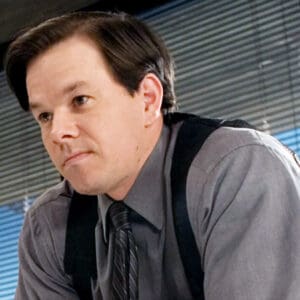
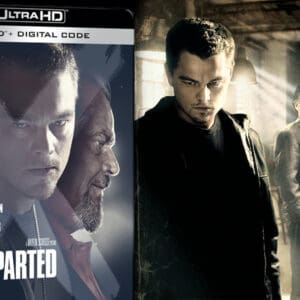
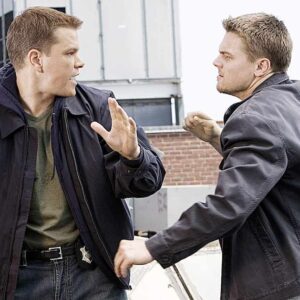
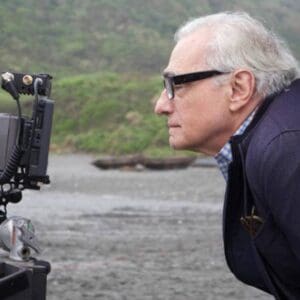






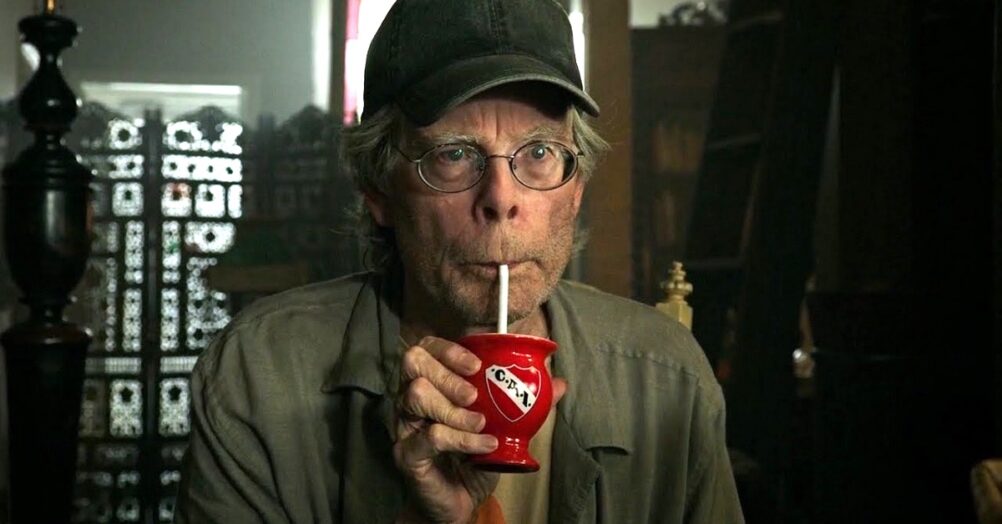

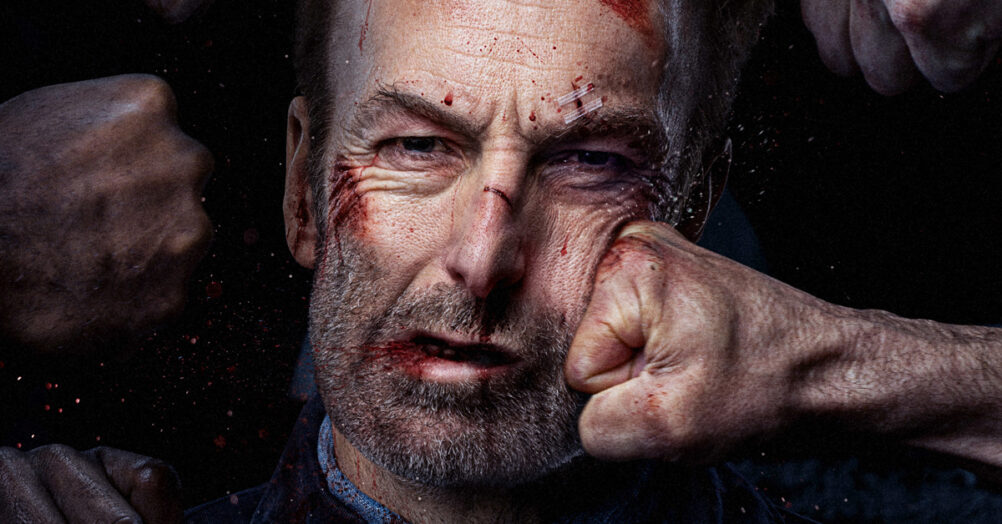

Follow the JOBLO MOVIE NETWORK
Follow us on YOUTUBE
Follow ARROW IN THE HEAD
Follow AITH on YOUTUBE